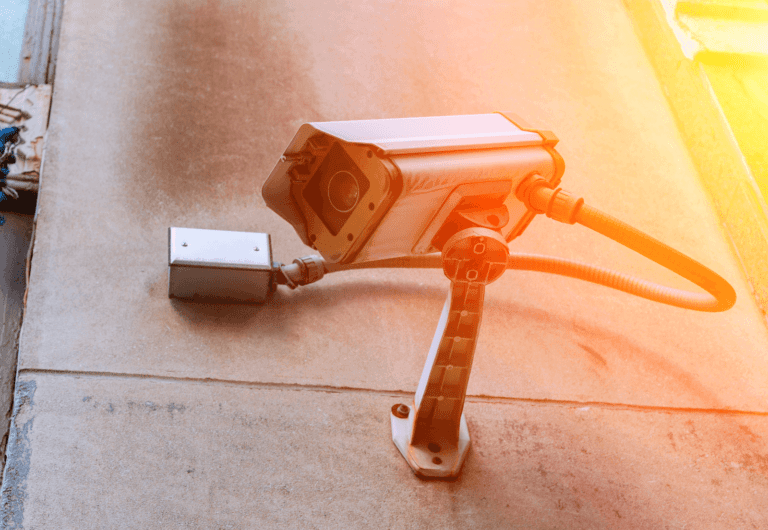
As security cameras become more common in businesses and homes, it is important to know the laws regarding how to use them. These cameras help keep places safe, but using them incorrectly can cause legal problems. Therefore, what are the established rules?
Before installing a security system, it is important to understand the laws that control surveillance. Knowing federal and state regulations helps you avoid legal problems.
The Electronic Communications Privacy Act (ECPA) is important for understanding how surveillance is regulated. This law mainly controls the interception of communications. The rules for audio recording are very strict, usually requiring permission from at least one person in the conversation. Recording audio without permission can lead to legal problems, and security camera systems need to be set up properly to follow these rules.
State laws make things more complicated. For example, California requires permission from all participants in a recorded conversation, while New York’s laws are less stringent. It’s important to know the exact rules in your area because recording someone without their permission could violate privacy laws.
The idea of having a “reasonable expectation of privacy” is very important when deciding where to place cameras. Places like bathrooms or locker rooms typically have strong expectations of privacy, and placing cameras there may violate privacy rules. It is important to consider people’s privacy while considering security needs.
Once you’ve navigated the legal landscape, implementing best practices ensures your security system functions effectively while staying compliant with the law.
Cameras should cover common areas of your property to maximize security and minimize legal risks. Ensure it does not point to neighboring properties or areas where privacy is expected.
Placing security cameras usually means you need to put up signs to inform them they are there. This helps prevent people from trying to break in and also makes sure everything is clear and follows the rules. Sign rules can be different everywhere, so it’s a good idea to check what your area says.
Manage recorded videos carefully. This includes keeping data secure, determining how long it should be stored, and controlling who can see it to prevent unauthorized access. Typically, the video should not be kept longer than necessary and should only be available to trusted individuals. This helps avoid any misuse and potential legal problems.
Misunderstandings about what is allowed in security cameras can lead to legal problems and ineffective security procedures.
Many assume that security cameras automatically include audio capabilities. However, laws around audio recording are stricter than those for video. As previously mentioned, permission is often required to record audio, meaning many cameras don’t have this feature enabled by default for compliance reasons.
Although you can install cameras on your property, there are limitations. Recording in places where people typically expect privacy, such as personal offices or homes, without permission often violates privacy laws. It is important to know the difference between monitoring public places and secretly monitoring private places.
Consent is very important in surveillance, especially for audio recording. You must obtain consent from all participants before registering. Not getting this permission can lead to serious legal issues and punishments.
Surveillance cameras make people feel safe. However, it is important to know how and where to use them correctly. This ensures that everything is legal and working well. At Severity Security, we offer CCTV systems installation that can help deter crime, improve safety, and provide valuable evidence in the event of an accident.
Monday - Thursdays :
8 Am -5 Pm
Every Fridays (8AM – 12N)
Every Saturdays (8AM – 3PM)